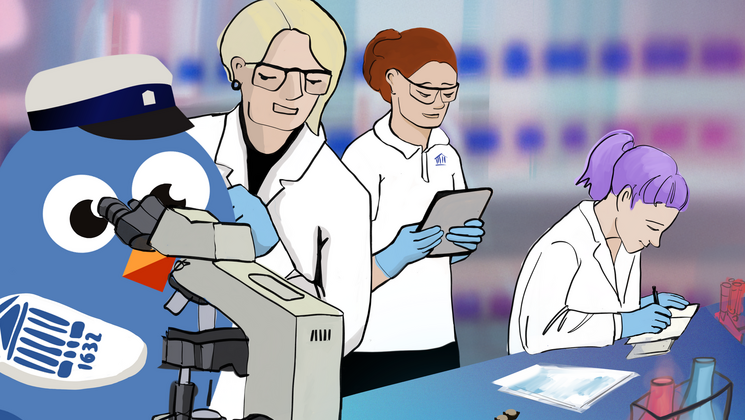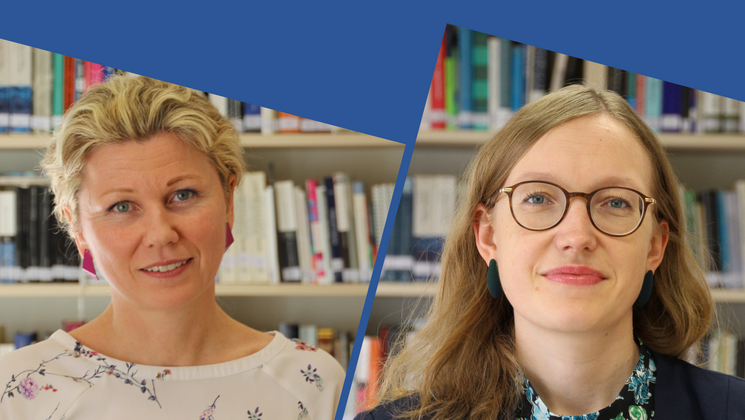-
Faculty of Arts and HumanitiesDean's Office, Faculty of Arts and HumanitiesJakobi 2 ruumid 116–121, 51005 Tartu linn, EST0Institute of History and ArchaeologyJakobi 2 51005 Tartu linn, Tartu linn, Tartumaa EST0Institute of Estonian and General LinguisticsJakobi 2, IV korrus 51005 Tartu linn, Tartu linn, Tartumaa EST0Institute of Philosophy and SemioticsJakobi 2, III korrus, ruumid 302-337 51005 Tartu linn, Tartu linn, Tartumaa EST0Institute of Cultural ResearchÜlikooli 16 51003 Tartu linn, Tartu linn, Tartumaa EST0Institute of Foreign Languages and CulturesLossi 3 51003 Tartu linn, Tartu linn, Tartumaa EST0School of Theology and Religious StudiesÜlikooli 18 50090 Tartu linn, Tartu linn, Tartumaa EST0Viljandi Culture AcademyPosti 1 71004 Viljandi linn, Viljandimaa EST0Professors emeriti, Faculty of Arts and Humanities0Associate Professors emeriti, Faculty of Arts and Humanities0Faculty of Social SciencesDean's Office, Faculty of Social SciencesLossi 36 51003 Tartu linn, Tartu linn, Tartumaa EST0Institute of EducationJakobi 5 51005 Tartu linn, Tartu linn, Tartumaa EST0Johan Skytte Institute of Political StudiesLossi 36, ruum 301 51003 Tartu linn, Tartu linn, Tartumaa EST0School of Economics and Business AdministrationNarva mnt 18 51009 Tartu linn, Tartu linn, Tartumaa EST0Institute of PsychologyNäituse 2 50409 Tartu linn, Tartu linn, Tartumaa EST0School of LawNäituse 20 - 324 50409 Tartu linn, Tartu linn, Tartumaa EST0Institute of Social StudiesLossi 36 51003 Tartu linn, Tartu linn, Tartumaa EST0Narva CollegeRaekoja plats 2 20307 Narva linn, Ida-Virumaa EST0Pärnu CollegeRingi 35 80012 Pärnu linn, Pärnu linn, Pärnumaa EST0Professors emeriti, Faculty of Social Sciences0Associate Professors emeriti, Faculty of Social Sciences0Faculty of MedicineDean's Office, Faculty of MedicineRavila 19 50411 Tartu linn, Tartu linn, Tartumaa ESTInstitute of Biomedicine and Translational MedicineBiomeedikum, Ravila 19 50411 Tartu linn, Tartu linn, Tartumaa ESTInstitute of PharmacyNooruse 1 50411 Tartu linn, Tartu linn, Tartumaa ESTInstitute of DentistryL. Puusepa 1a 50406 Tartu linn, Tartu linn, Tartumaa ESTInstitute of Clinical MedicineL. Puusepa 8 50406 Tartu linn, Tartu linn, Tartumaa ESTInstitute of Family Medicine and Public HealthRavila 19 50411 Tartu linn, Tartu linn, Tartumaa ESTInstitute of Sport Sciences and PhysiotherapyUjula 4 51008 Tartu linn, Tartu linn, Tartumaa ESTProfessors emeriti, Faculty of Medicine0Associate Professors emeriti, Faculty of Medicine0Faculty of Science and TechnologyDean's Office, Faculty of Science and TechnologyVanemuise 46 - 208 51003 Tartu linn, Tartu linn, Tartumaa ESTInstitute of Computer ScienceNarva mnt 18 51009 Tartu linn, Tartu linn, Tartumaa ESTInstitute of GenomicsRiia 23b/2 51010 Tartu linn, Tartu linn, Tartumaa ESTEstonian Marine Institute0Institute of PhysicsInstitute of ChemistryRavila 14a 50411 Tartu linn, Tartu linn, Tartumaa EST0Institute of Mathematics and StatisticsNarva mnt 18 51009 Tartu linn, Tartu linn, Tartumaa EST0Institute of Molecular and Cell BiologyRiia 23, 23b - 134 51010 Tartu linn, Tartu linn, Tartumaa ESTTartu ObservatoryObservatooriumi 1 61602 Tõravere alevik, Nõo vald, Tartumaa EST0Institute of TechnologyNooruse 1 50411 Tartu linn, Tartu linn, Tartumaa ESTInstitute of Ecology and Earth SciencesJ. Liivi tn 2 50409 Tartu linn, Tartu linn, Tartumaa ESTProfessors emeriti, Faculty of Science and Technology0Associate Professors emeriti, Faculty of Science and Technology0Institute of BioengineeringArea of Academic SecretaryHuman Resources OfficeUppsala 6, Lossi 36 51003 Tartu linn, Tartu linn, Tartumaa EST0Area of Head of FinanceFinance Office0Area of Director of AdministrationInformation Technology Office0Administrative OfficeÜlikooli 17 (III korrus) 51005 Tartu linn, Tartu linn, Tartumaa EST0Estates Office0Marketing and Communication OfficeÜlikooli 18, ruumid 102, 104, 209, 210 50090 Tartu linn, Tartu linn, Tartumaa EST0Area of Vice Rector for DevelopmentCentre for Entrepreneurship and InnovationNarva mnt 18 51009 Tartu linn, Tartu linn, Tartumaa EST0University of Tartu Natural History Museum and Botanical GardenVanemuise 46 51003 Tartu linn, Tartu linn, Tartumaa EST0International Cooperation and Protocol Office0University of Tartu MuseumLossi 25 51003 Tartu linn, Tartu linn, Tartumaa EST0Area of RectorRector's Strategy OfficeInternal Audit OfficeArea of Vice Rector for Academic AffairsOffice of Academic AffairsUniversity of Tartu Youth AcademyUppsala 10 51003 Tartu linn, Tartu linn, Tartumaa EST0Student Union OfficeÜlikooli 18b 51005 Tartu linn, Tartu linn, Tartumaa EST0Centre for Learning and TeachingArea of Vice Rector for ResearchUniversity of Tartu LibraryW. Struve 1 50091 Tartu linn, Tartu linn, Tartumaa EST0Grant Office
EU project “WHOSEFVA” has been successful in supporting elderly female victims of abuse
One year after the launch and Kick Off Meeting of the WHOSEFVA Project in Greece, the 3rd Partner meeting was held in Vienna, Austria from 1 -3 March 2018 to share and discuss key results and outputs of the project to date. This two-year project, co-funded by the European Commission under the Daphne programme, aims to increase the capacity of domestic violence organizations to better represent the interests and voices of older female victims of violence in healthcare and healthcare policy, thus helping to better comply with the desires of the EU. The WHOSEFVA project is currently being implemented in the following six partner countries: Austria, Estonia, Finland, Greece, Latvia and the UK.
Violence against older people, especially violence against older women, occurs in all social classes and cultures and is a widespread problem in Europe. The extent of the violence is serious and affected women are experiencing many facets of violence in the family, public and institutional spheres, yet we have not talked much about it. “With WHOSEFVA, we were once again able to bring the subject of violence against older women out of the taboo,” according to Maria Rösslhumer, project partner in Austria.
Since the start of WHOSEVFA, a total of 14 Mutual Learning Workshops have taken place in the partner countries. In the process, partners have been able to inform, support and prepare 280 doctors, social workers and experts from victim protection institutions on the topic of violence against older women. The contents of the workshops were very extensive, with the aim to mutually exchange knowledge and experiences and develop a clear attitude against all forms of violence.
In addition, WHOSEFVA has had the opportunity to speak with 67 women and men in the context of focus groups about their experiences of violence in old age. The results of both activities are very helpful in articulating concrete policy demands to end violence against older women - both at national and European level.
A central and common EU-level WHOSEFVA requirement is the legal implementation of training for professionals - especially in the health care sector and on the issue of gender based violence. The theories of abuse in the Istanbul Convention recommend in Article 15.1: “Parties shall provide or strengthen appropriate training for the relevant professionals dealing with victims or perpetrators of all acts of violence covered by the scope of this Convention, on the prevention and detection of such violence, equality between women and men, the needs and rights of victims, as well as on how to prevent secondary victimisation."
One key component of the training of professionals is the WHOSEFVA Training Manual which has recently been published, and aims to provide an overall training programme on elder abuse and violence against older women, with special consideration to the needs and concerns of older women. This Training Manual will become available on the WHOSEFVA project website by the summer of 2018, and is translated into all national partner languages (English, Estonian, German, Greek, Finnish, and Latvian). Throughout the duration of the project, WHOSEFVA will develop replicable guidelines on how to implement intervention measures for better prevention and identification of violence against older women in health and social care settings.
Key contact information of WHOSEFVA partners:
Women’s Support and Information Centre, Estonia, Pille Tsopp-Pagan: pille.tsopp-pagan@naistetugi.ee
University of Tartu, Estonia, Hector Pagan: hector@ut.ee
Sirkka Perttu, Finland: slperttu@gmail.com
Kilcooley Women’s Centre, UK, Roberta Gray: roberta@kilcooleywomenscentre.co.uk
Union of Women’s Associations of Heraklion Prefecture, Greece, Nicholas Spetsidis, projects@kakopoiisi.gr
MARTA Centre, Latvia, Dita Lāce: dita@marta.lv
Austrian Women’s Shelter Network, Austria, Maria Rösslhumer: maria.roesslhumer@aoef.at
Women against Violence Europe, Europe, Kelly Blank: kelly.blank@wave-network.org
WHOSEFVA Project Website: www.whosefva-gbv.eu
"Co-funded by the Rights, Equality and Citizenship (REC) Programme of the European Union under Grant Agreement no JUST/2015/RDAP/AG/VICT/9320”
Forwarded by:
Heidi Mõttus
Marketing and Communications Assistant
Johan Skytte Institute of Political Studies
University of Tartu
heidi.mottus@ut.ee
Read more similar news





